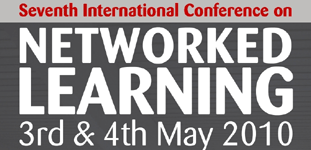

ELYK - e-learning for SME in outlying areas
Niels Henrik Helms
University of Southern Denmark, Odense, Denmark
Simon Heilesen
Roskilde University, Roskilde, Denmark
Abstract
The ELYK project intends to devise new ways of developing competencies in small and medium sized enterprises (SME) in outlying areas in Denmark. Its premise is that internetworking and net-based learning will help achieve this goal. A series of experiments will be conducted, based on principles of action research and user driven innovation.
There are four sub-projects: 1. Identifying project participants, inquiring into challenges to furthering e-learning as a tool for developing competencies, and identifying initiatives helpful to overcoming these barriers. 2. Mapping existing communicative practices and plan and implement new ways of facilitating net-based communication in professional networks and clusters. 3. Inquiring into what kind of strategies for developing competencies through e-learning that are relevant for SME in outlying areas; and how, regionally, it will be possible to organise programs for advising enterprises on the subject. 4. Experiments with supplementary education and in-service training at individual, intra-organisational and inter-organisational levels. User participation and user considerations are pivotal to all of these experiments.
The challenge is to develop interfaces between informal learning at the workplace, between enterprises, and formal learning offered by e.g. FE-Colleges Findings so far suggest that the so-called skills-gap is simply a complex pattern consisting of A) a group of low skilled and low motivated individuals outside employment. B) A competent, but low skilled workforce inside the enterprises. C) An urgent pressure for ongoing process-improvement and product development.
Relative autonomy, involvement, complex tasks, and individual quality control characterize the production structure. Globalisation creates structural changes, but so far this has been largely beneficial. Now, the perceived dynamic, yet stable relationship between training offered by colleges and the needs of enterprises is breaking down. Yet, the "tacit learning ecologies" within the enterprises need articulation because of the growing cooperation with distant partners. Enterprises need structural couplings between the ongoing learning in and between enterprises. They require a sort of enterprise-specific micro learning. This presents a challenge to the general model of formal education. Nationally, reforms have been implemented to secure a higher degree of flexibility within these systems. But this is contrasted to the economic incitements, and maybe especially to the cultural traditions of the colleges and their faculty. So far, ELYK has demonstrated willingness at colleges to find new ways of developing content and delivery of learning. Future experiments may result in validated models for new ways of developing e-learning supporting economic development in outlying areas.
| About NLC | Welcome Messages| Acknowledgwments | Conference Proceedings| Keynote Speakers| Index of Presenting Authors| Contact |